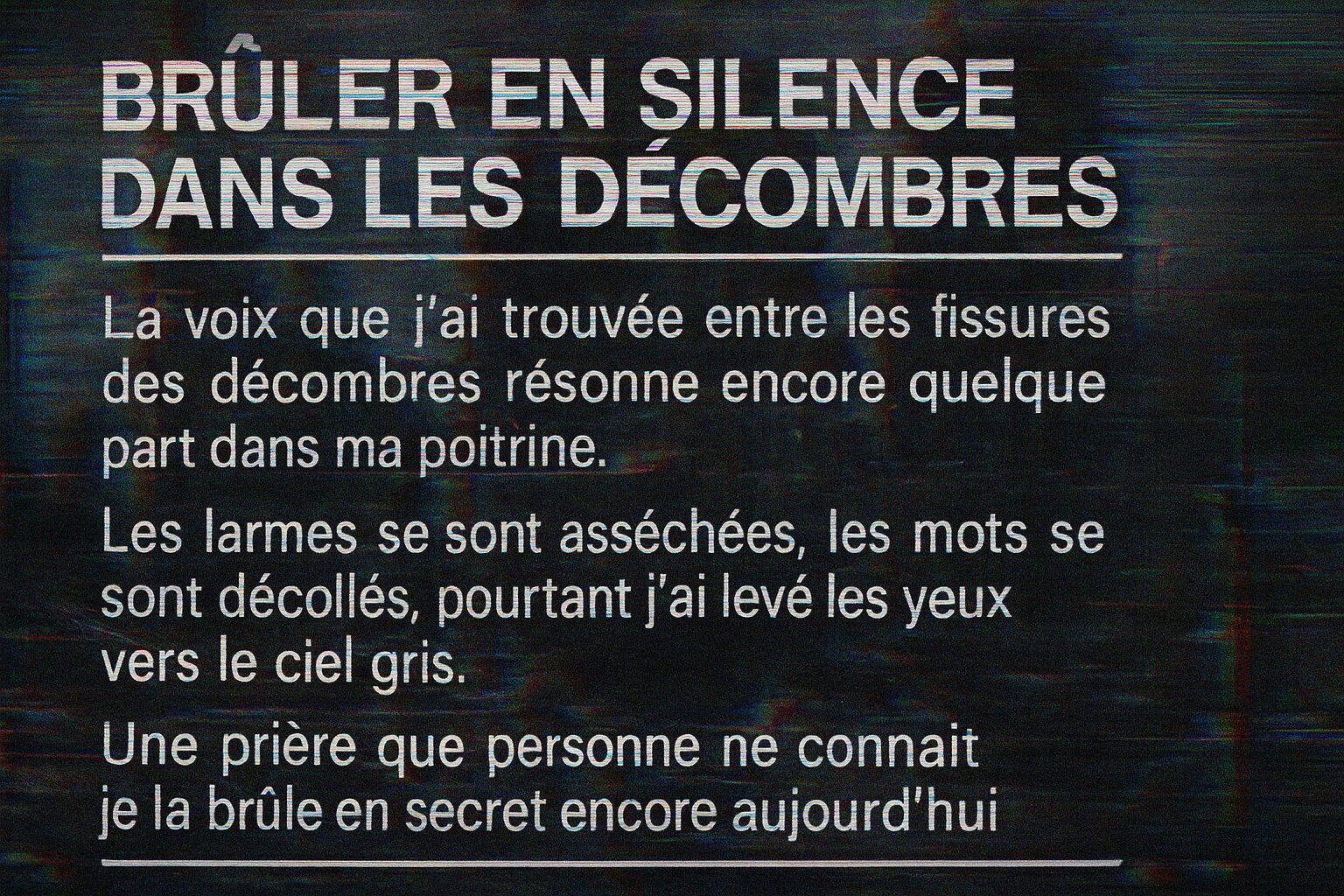There’s something strangely intimate about ruins.
Not just their physical decay, but the emotional residue that clings to them.
This piece begins in silence—deep within the shattered bones of a city, where something human, fragile, and painfully persistent is still echoing.
The voice I found in the gaps of rubble that day
is still echoing somewhere in my chest.
We rarely speak of the voices we carry.
They’re not always voices of others.
Sometimes, they’re fractured versions of ourselves—a line from the past, a cry we weren’t allowed to finish.
This one, found between rubble, refuses to fade.
It hums quietly in the spaces between breath and thought.
It is not a scream, not a memory.
It’s something rawer—almost elemental.
Tears have dried up, words have peeled away,
yet I looked up at the gray sky.
This line hits like ash settling on skin.
Grief has already passed its stormy phase.
There’s no flood of emotion left, just the numb aftermath.
Language fails us here.
What can words do when meaning has already disintegrated?
All that’s left is the act of looking up.
Even into a blank, colorless sky.
It’s an act of quiet rebellion.
To look up despite everything.
A prayer no one knows
I am secretly burning again today.
Here lies the heart of this piece: a ritual no one witnesses.
The poem doesn’t shout for recognition.
It doesn’t ask to be saved.
It simply burns.
Soft, persistent, hidden.
This “prayer” isn’t necessarily religious.
It might be a stubborn hope.
A hidden grief.
An unresolved rage.
And like many of us, the poet doesn’t want it seen.
Some things are too fragile for daylight.
So she keeps it alive.
Quietly.
Every day.
What makes this kind of writing powerful is not its complexity, but its restraint.
It doesn’t explain everything.
It leaves you in the debris, hands in the dust, asking your own questions.
Who did the voice belong to?
What was lost?
What is still burning?
The beauty lies in not knowing.
In feeling the ache, even when we can’t name it.
This piece isn’t meant to comfort.
It’s meant to witness.
And sometimes, that’s enough.


コメント